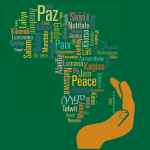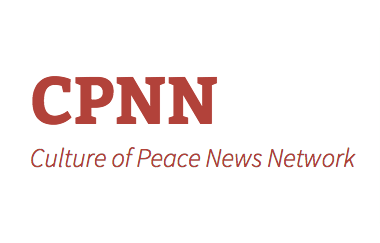THE STRUGGLE OF AFRICA
There is an epic struggle for the heart of Africa between the forces of the culture of war and those of the culture of peace. On the one hand, attacks by Boko Harem, Al Qaida, ISIS, and Al-Shabaab get the headlines in the commercial media, not to mention potential for civil war in Burundi and the fratricidal war in Southern Sudan, On the other hand, if the many recent articles in CPNN about initiatives for the culture of peace are an indication, it is the culture of peace that is gaining!
African Union: Burundi agrees to accept African Union human rights monitors
African Union: 26th Ordinary Session of the AU Assembly concludes with gratitude to Ebola fighters and peace as priorities of the continent
African Union: Retreat of the Pan-African Network of the Wise
Senegal: The feminist Bineta Diop: United against war in Africa
Tunisia: Appeal for massive particiption in the first international meeting on education for peace
Cameroon: Community radio in the service of peace education
Morocco: Muslims Advance Consensus for Citizenship for All: The Marrakesh Declaration
Mali: Elaboration of a national program for culture of peace: Experts at work
Ethiopia: AAPI Convenes 2nd Arts4Peace Forum in Addis Ababa
Congo (DRC): Declaration of the Youth Clubs of the Congo Peace Network
Congo (DRC): Goma, Nord Kivu: Third edition of the Amani Music Festival
Sierra Leone News: Minister urge delegates to develop a culture of peace
The Gambia: African countries must unite
South Africa: African women organize to reclaim agriculture against corporate takeover
Chad: Commemoration of the National Day of peace, peaceful coexistence and national harmony
As Nestor Bidadanure describes in his article on How to Achieve the Freedom Promised: "In Africa, the decolonization in the legal sense has not been followed by an ideological break with the colonial model of governance by some of the political elite. . . The colonial practice of divide and rule is continued today as the favorite political weapon of extremist elites."
He concludes that "The Culture of Peace should be considered and taught as an ideal that ties together and strengthens that which has been torn apart. It is the antithesis of Radical Identity Populism, a theory of inclusion and reconciliation with which we can achieve the freedom promised, an Africa at peace with herself and with the world. It considers the differences within a nation to be a precious resource. It reminds us that there is no national identity except the diversity, both cultural and human, of all its citizens."

